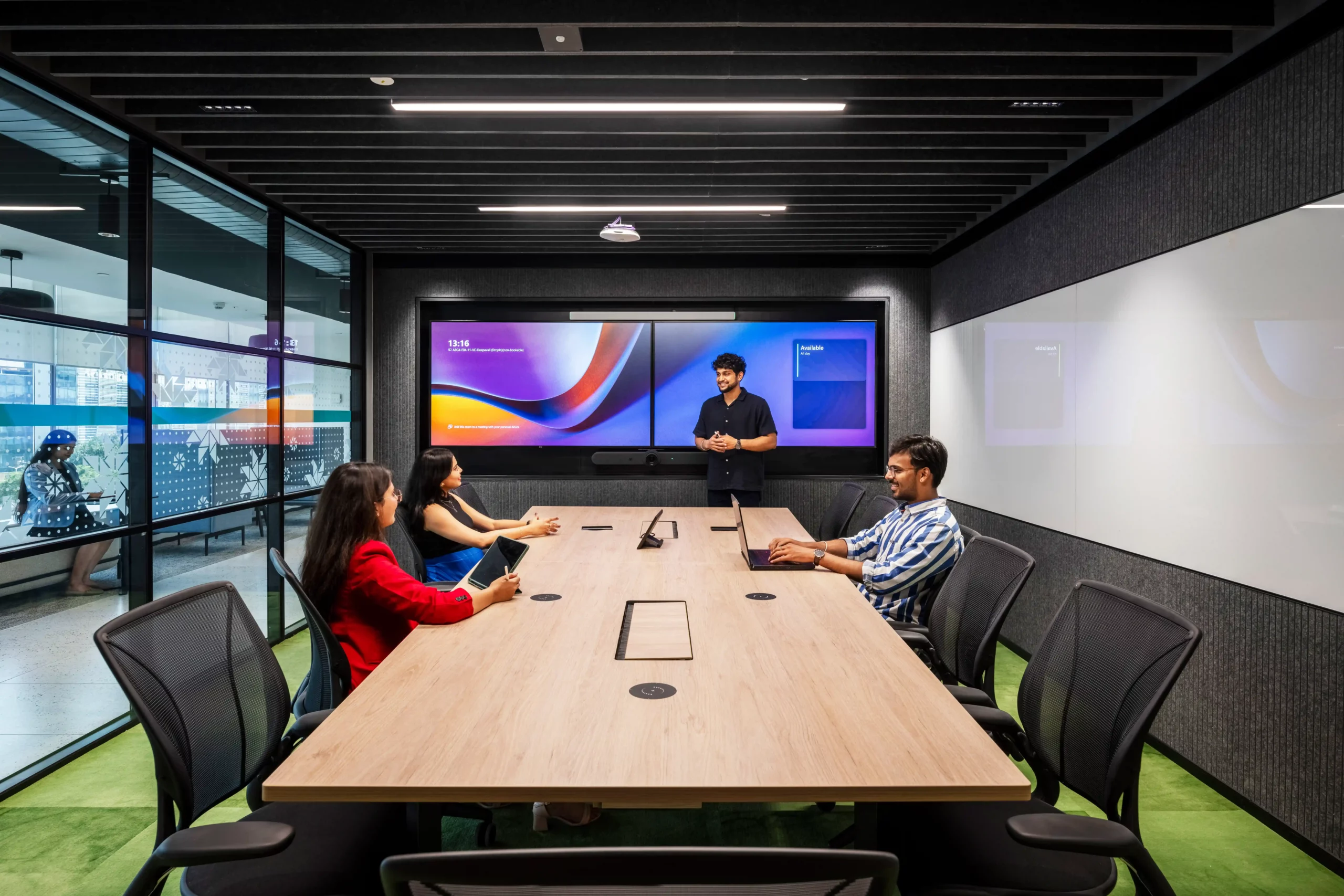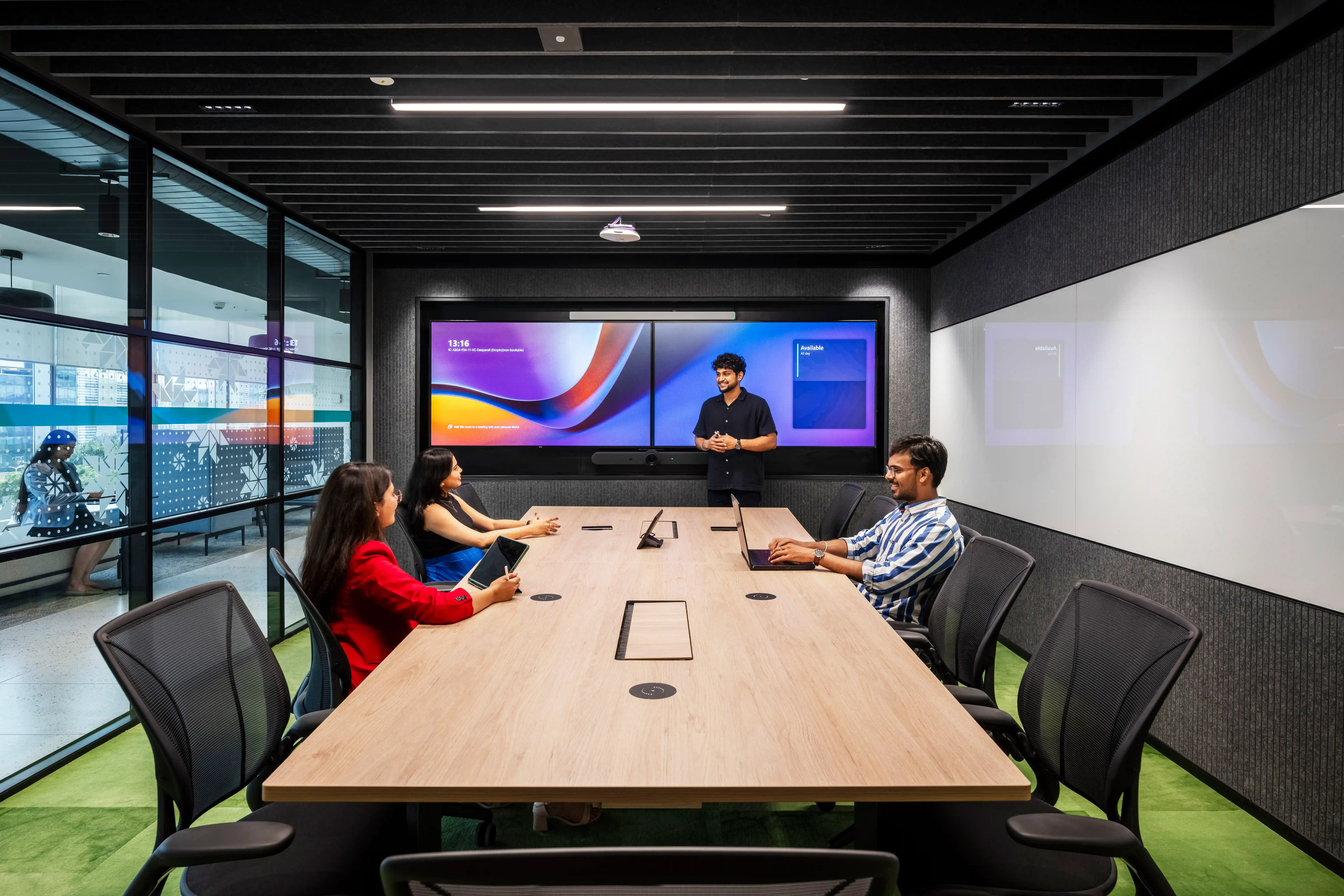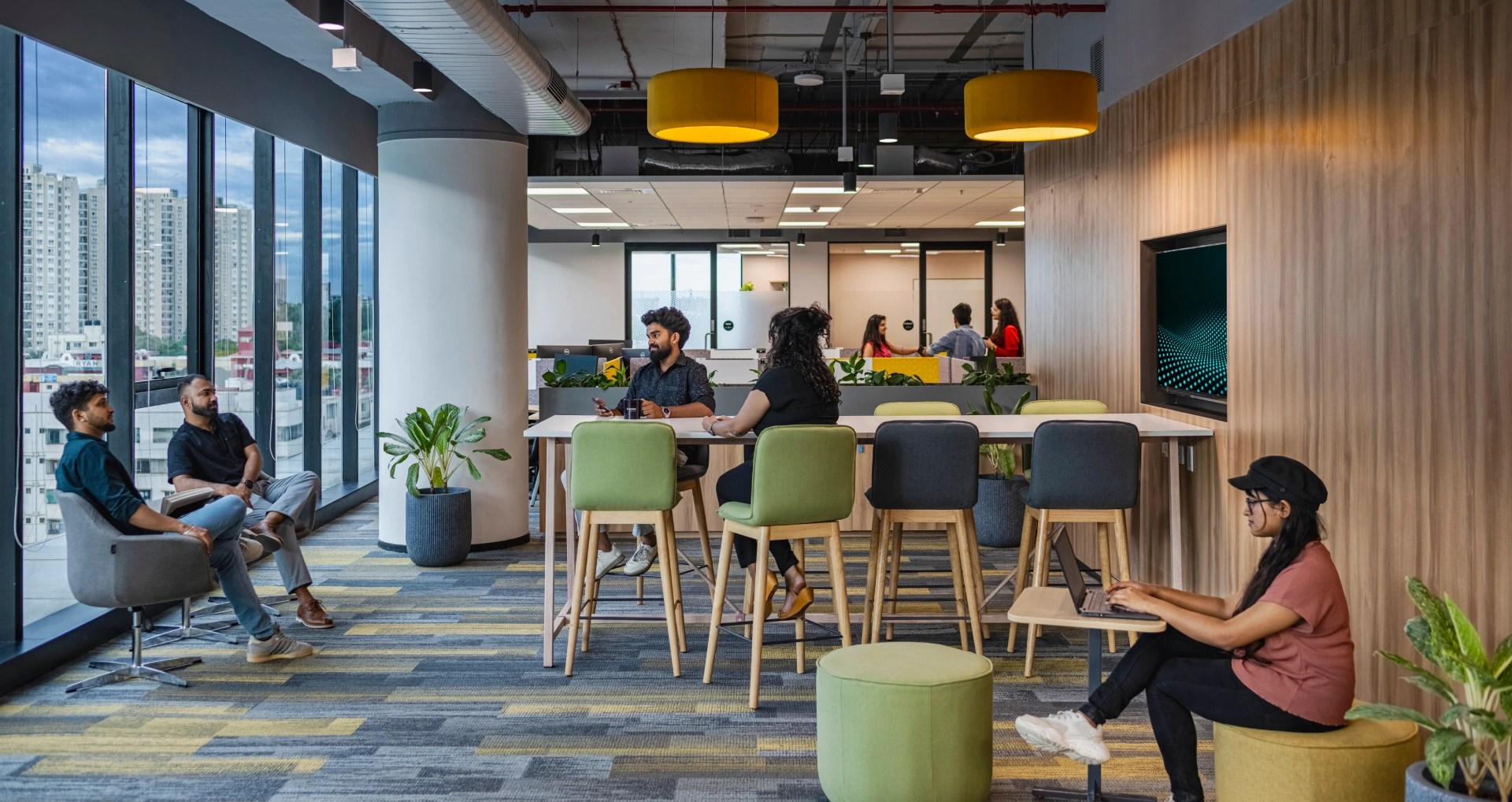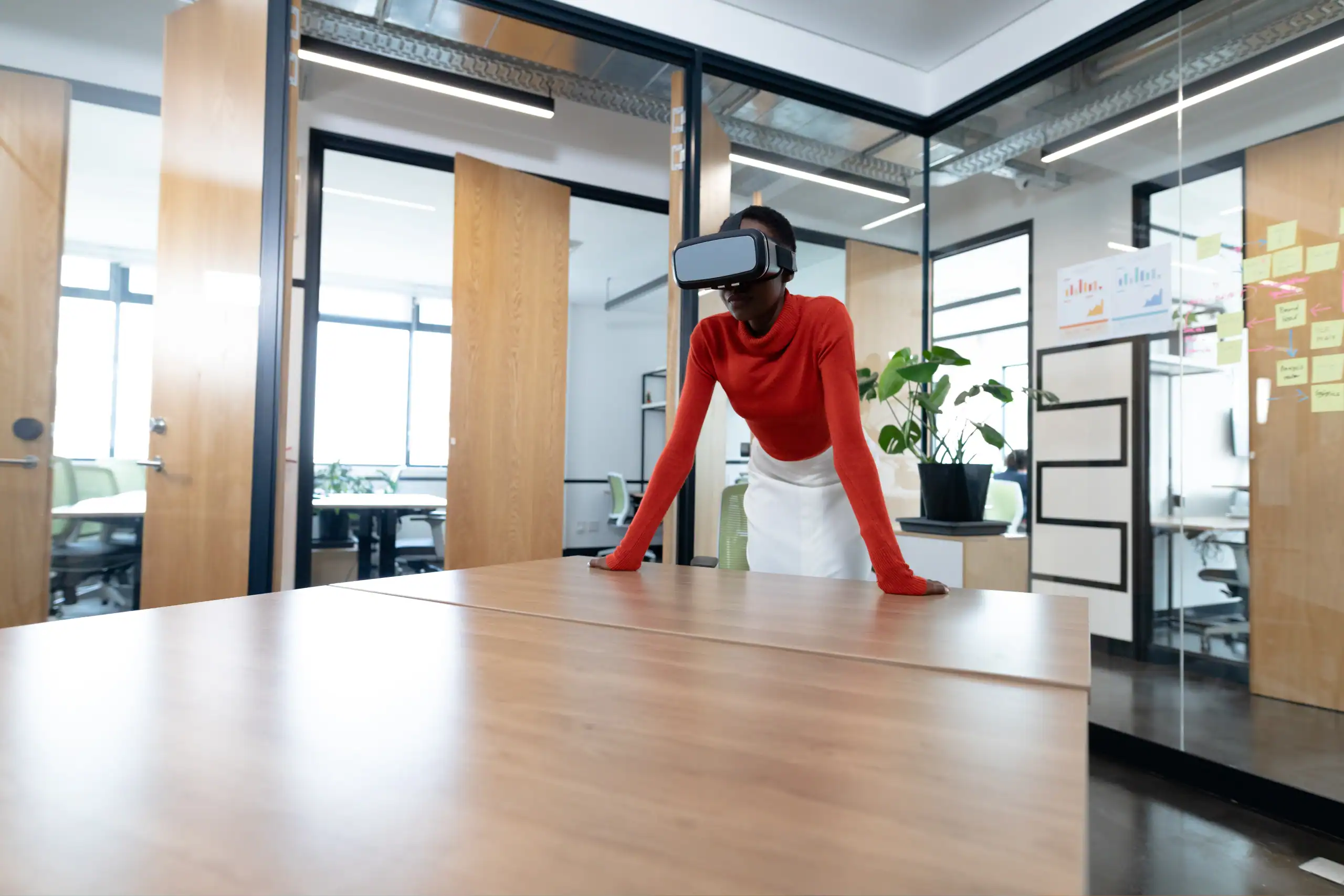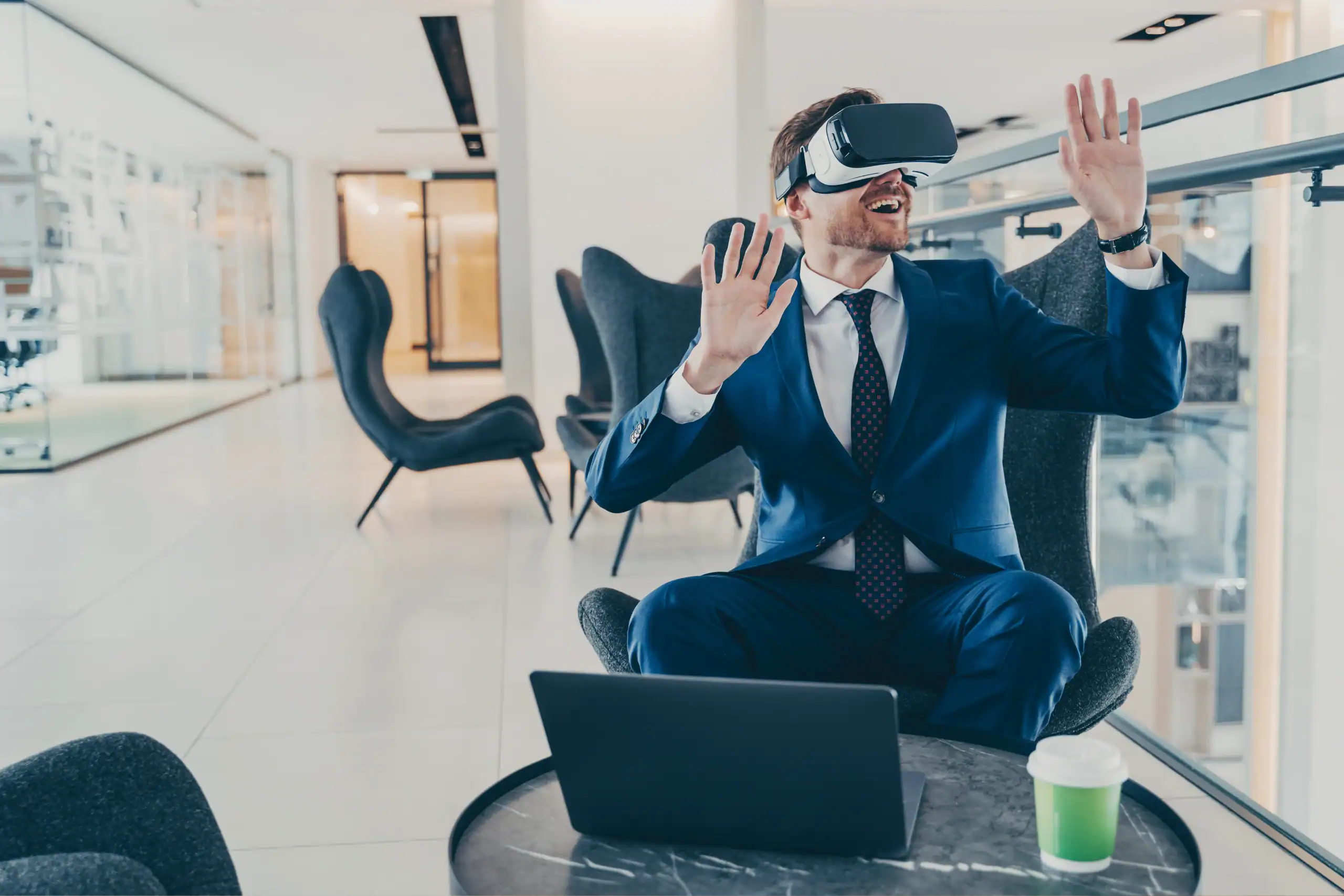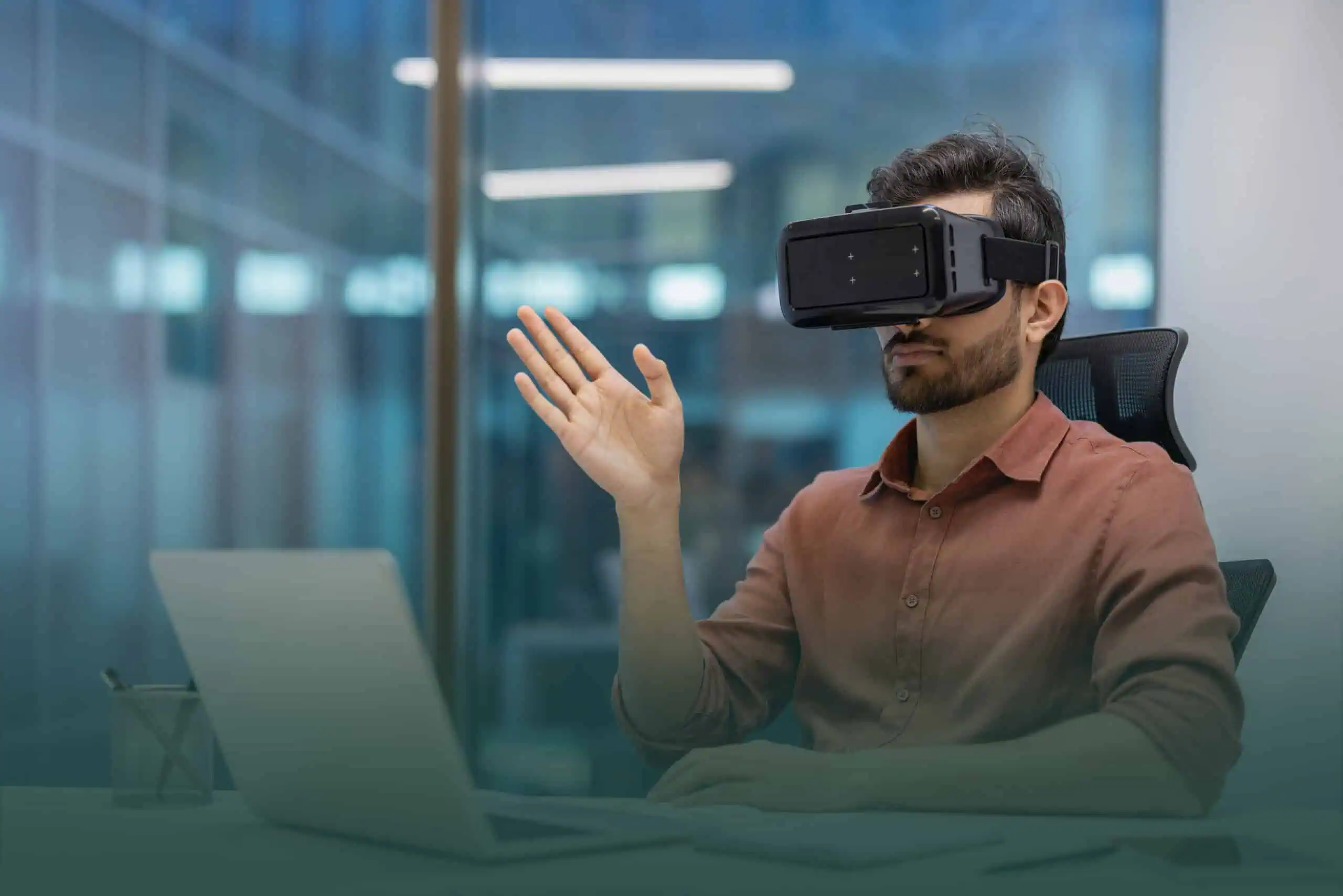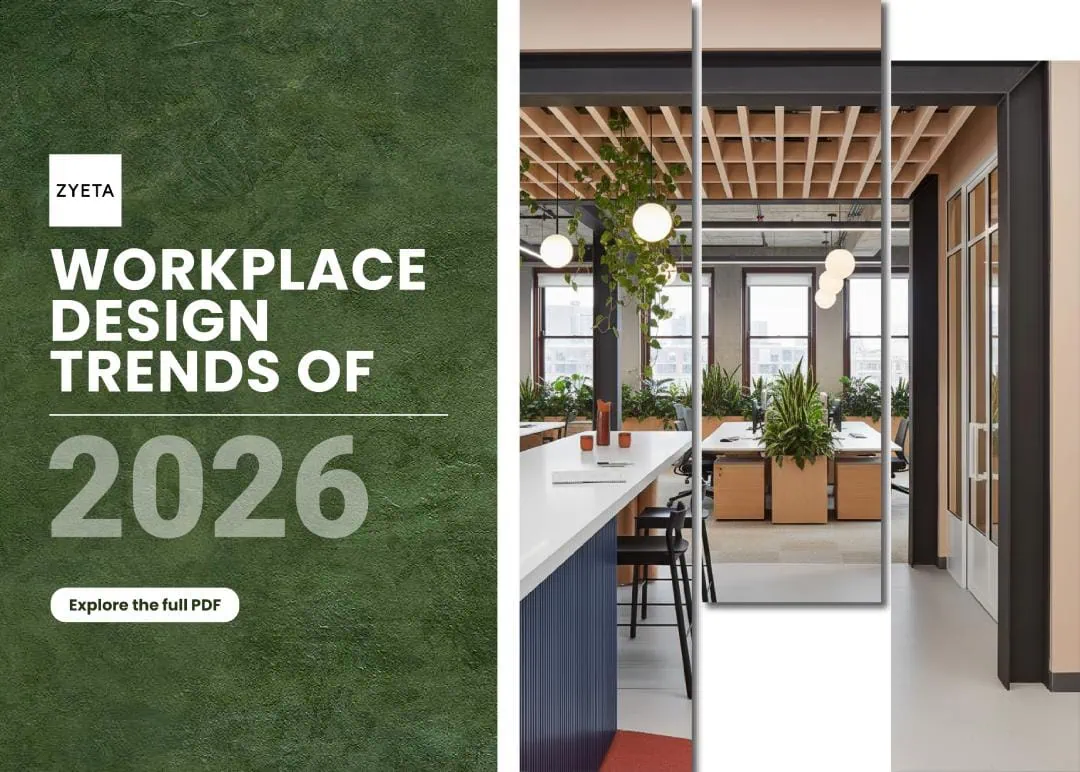“AI will be the single most transformative technology for the future of work. It will create new industries, redefine job roles, and unlock unprecedented levels of productivity and innovation.”
– Sundar Pichai, CEO of Alphabet Inc.
In today’s fast-paced and technology-driven era, Artificial Intelligence (AI) has become a game-changer, revolutionizing the way we work and boosting productivity in unprecedented ways. Everyone defines AI differently and that is just it, AI isn’t just one thing. As businesses embrace AI as a key driver of growth, the numbers speak for themselves – 84% of companies recognize the significance of AI in their strategies. Step into the future of work, where AI takes centre stage, transforming every aspect of how work gets done.
The Atlas robot, developed by Boston Dynamics, is a remarkable example of how artificial intelligence is revolutionizing the future of work. With its humanoid form, advanced sensors, and exceptional mobility, the Atlas seamlessly integrates with human employees, revolutionizing productivity. By automating repetitive tasks and tackling challenging environments, it enhances safety, increases efficiency, and empowers workers to focus on complex and creative endeavours. The fusion of AI and human collaboration exemplified by the Atlas robot promises to unlock new possibilities and create a harmonious synergy that propels the future of work forward.
Embracing AI in Workplace Design
Now imagine a workplace that seamlessly adapts to individual needs, anticipates preferences, and empowers employees to reach new heights. Thanks to AI, that dream is now a reality. From personalized experiences to intelligent systems that automate routine tasks, AI is revolutionizing traditional workspaces into vibrant, productive hubs. Watch as mundane tasks vanish, communication soars to new heights, decisions become sharper and employee well-being flourishes. The result? A dynamic, productive environment that propels businesses to extraordinary success.
Unparalleled Flexibility and Choice – Personalized Workplace Experience:
Creating a productive and engaging work environment is vital for organizations looking to maximize employee performance. While workplace design and interiors have a profound impact on employee productivity, leveraging the power of artificial intelligence can take it to the next level. By harnessing the power of AI, the workplace experience can be personalized to cater to the unique preferences, work patterns, and environmental sensitivities of each individual employee.
- Optimised Space Planning:
- Intelligent Time Management:
- Lighting Intelligence:
- Intelligent Noise Management:
- Ergonomics Reinvented:
- Collaboration Space Optimization:
- Empowering Remote Work and Virtual collaboration:
- Employee Wellbeing and Mental Health:
To begin with, AI-powered space planning software can analyse vast amounts of data regarding user behaviour to generate dynamic workplace adaptations, with optimal space plans that maximize productivity and employee satisfaction. From determining the most efficient layout to allocating spaces for collaboration, relaxation, and focused work, AI streamlines the design process and creates a workspace tailored to the users’ unique requirements.
Wayfinding and navigation in large office spaces can be overwhelming and time-consuming to navigate. AI-powered wayfinding systems can provide employees with optimized routes and directions within the workplace. By analysing real-time data on foot traffic and congestion, AI algorithms can guide employees to their desired locations efficiently, minimizing time wastage and improving overall productivity.
Lighting plays a crucial role in employee well-being and productivity. With AI, lighting systems can be automated and optimized. Smart lighting solutions equipped with sensors and machine learning algorithms can adjust light intensity, colour temperature, and direction throughout the day, mimicking natural light patterns. This ensures consistent illumination while minimizing energy consumption. By creating a harmonious lighting environment, AI helps employees stay focused, energized, and in sync with their circadian rhythms.
Intelligent noise management solutions are increasingly being deployed to address workplace noise control issues. These AI-based systems utilize advanced algorithms to monitor and regulate noise levels in real-time, creating quieter and more productive work environments. By identifying sources of noise and adjusting sound masking systems accordingly, these solutions effectively reduce distractions and improve overall productivity.
Ensuring ergonomic workstations is essential for employee comfort and health. AI can provide real-time feedback and recommendations to employees regarding their workstation ergonomics. Using computer vision technology, AI can analyse posture, monitor movement, and suggest adjustments to prevent discomfort or injuries. Additionally, AI-powered virtual reality (VR) simulations can create personalized ergonomics training programs, allowing employees to optimize their workspace setup for maximum comfort and productivity.
Collaboration is essential for teamwork and innovation. AI can optimize the design and allocation of collaboration spaces by analysing usage patterns and collaboration needs. By considering factors like team sizes, project requirements, and scheduling preferences, AI algorithms ensure that the collaboration spaces are efficiently utilized and facilitate effective teamwork. Intelligent scheduling systems can also assist in managing and optimizing meeting room bookings, minimizing conflicts, and maximizing productivity.
With the rise of remote work and virtual collaboration, AI technologies can facilitate seamless communication and collaboration among distributed teams. AI-powered virtual meeting platforms and tools can offer features like real-time language translation, transcription, and intelligent chatbots that facilitate efficient and effective remote collaboration. This enables employees to work together regardless of physical location, increasing productivity and flexibility.
Apple Vision Pro is set to revolutionize virtual work. With its advanced computer vision capabilities, this technology enables real-time analysis of visual data in remote environments. It enhances collaboration and communication among dispersed teams, facilitating seamless exchange and interpretation of visual information. From virtual meetings to training sessions, it empowers remote workers to make informed decisions and maintain productivity. Its integration into virtual workspaces promises to reshape the operational landscape and elevate the effectiveness of remote teams.
AI is transforming workplace wellness and mental health. It facilitates mental health conversations, providing a comfortable starting point for employees to seek support and resources. With its speed and discretion, AI ensures quick responses and connects employees with the right resources. The adoption of AI in workplace wellness promotes employee well-being and productivity, benefiting organizations.
At Microsoft’s headquarters in Redmond utilizes AI and IoT technology to personalize the workplace environment. Sensors detect employees’ presence and adjust factors like temperature, lighting, and desk height based on individual preferences. The system learns from behaviour patterns, anticipates needs, and provides personalized notifications and recommendations. This personalized workplace experience aims to enhance comfort, productivity, and engagement while creating an enjoyable work environment.
The Future Of Work Is Here, And AI Is Leading The Charge
The integration of AI in workplace design has proven to be a game-changer for organizations worldwide. By leveraging data analytics, machine learning, and computer vision technologies, companies can optimize space utilization, enhance lighting conditions, improve ergonomics, create aesthetically pleasing environments, and manage noise effectively. Statistical data and real-world applications demonstrate the significant positive impact of AI on productivity, employee satisfaction, and overall well-being. As technology continues to evolve, the future of workplace design is set to be even more intelligent and employee-centric.
Related Reads:
The Modern Digital Workplace – Part 1
Must-Have Technologies to Create a Healthy Workplace for IT Companies

